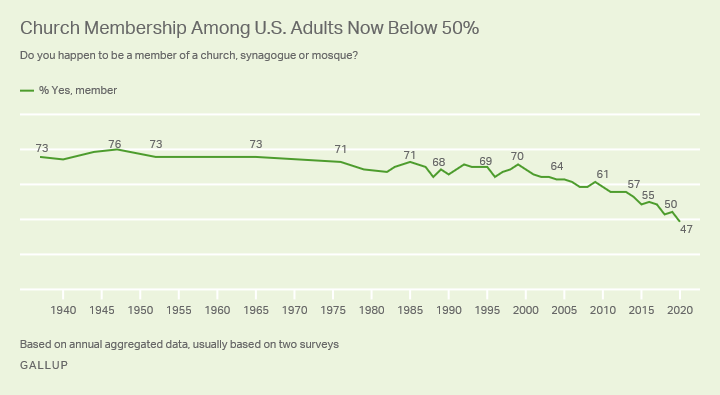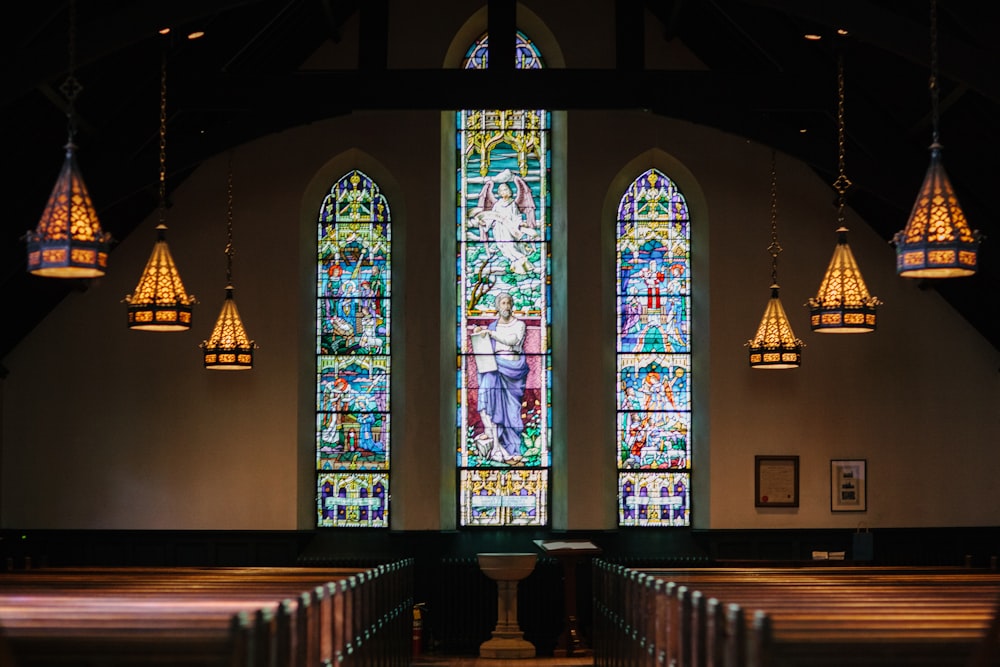Here’s the Church. Where’s the People?
A recent Gallup poll reveals a sobering reality, those who belong to a religious community are no longer the majority in North America. Gallup points out that this is part of an eight year trend of increases in those who no longer affiliate with a particular religious group. Though this is not surprising given the steady growth of the group known as “nones,” those who don’t affiliate with a particular religion, in recent years, it is reason for both contemplation and concern among religious leaders.

When George Gallup founded his organization in the mid 1930s, church membership hovered near three-quarters of the North American population. Those stats held strong for over half a century, but took a dip that turned into a steady decline at the turn of the twenty-first century. In addition to the growth of “nones,” there’s also a drop in church membership among those who affiliate with religious belief. That means there’s a growing number of people who identify as Christian, Jewish, or Muslim are dropping out of faith communities as well.
Why don’t people go to church anymore? That’s a difficult question, and not one for which any particular study or poll result can provide a satisfactory or simple answer. It’s complex. There’s a lot of reasons why people stop affiliating with a denomination in general or even with broader religious commitments.
It should be pointed out that this is a phenomena that is localized to Western Europe and North America. Around the world, Christianity is growing and is projected to continue to do so globally. This reflects the shifting of the central hub of the Christian movement, a displacement of the epicenter from North America.
Christianity started in the area of Palestine with news of a resurrected Jewish carpenter who claimed to be God. The central hub has shifted over the last two thousand years, and the recent news of the tipping point of a decline in religious affiliation in North America should be seen against a broader global backdrop. While today twelve percent of the world’s population of Christians reside in the US, by 2060 that number is projected to be down to nine percent, reflecting both a decline in Christian influence in North America and an increase in Christian believers elsewhere.
If I had to offer a quick summary of what has led to this outcome, I’d say it’s the secularization, liberalization, politicization, and commercialization of the Christian witness in North America has led us to this point. These converging influences, each in their own ways, contort the gospel message into something alien to the New Testament.
Why go to church if you don’t really believe in the supernatural or distrust Scripture? Why go to your church if it has been hijacked for a particular political platform? Why go to your church if it has been reduced to a depersonalized, though well-branded, drive through experience devoid of meaningful relationships and authentic accountability? Why?
Whatever factors led us here, this much is clear, when it comes to church membership, people are opting out.
For the Christian faith, the answer is simple: real, biblical, transformational community centered around the gospel. That is something people, once they’ve experienced it, won’t easily turn from. If we’ve forgotten that in North America, we need do little more than look out to the redemptive power of the gospel in places all over the world like China, where it is projected that by 2060, there will be more Christians there than in North America.
And as Christians, we should always look in, to Scripture itself, to see places like the book of Acts that show the unstoppable force of a faith community, centered on the gospel, filled with joy, and teeming with converts. There’s always hope for the church, because Jesus is her Lord and the gospel is her power. The church will always shrink back when it looks to find power anywhere else.

